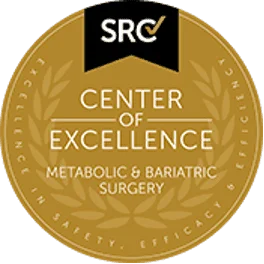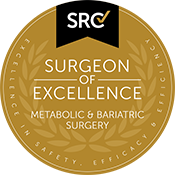Due for Your Gastroscopy & Colonoscopy Check up?
Your gut health is important. Here at SGOS, we provide regular scope check up and investigations for our patients.
As part of all rounded care, Dr Cheng is an certified and accredited GESA provider for therapeutic endoscopy and colonoscopy.

What is Gastroscopy?
A gastroscopy, also known as an endoscopy, is a procedure performed to diagnose and, in some cases, treat problems of the upper digestive system.
The endoscope is a long, thin, flexible tube with a tiny video camera and light. By adjusting the various controls on the endoscope, Dr Cheng can safely guide the instrument to examine the upper digestive system’s inside lining carefully.
What are some of the indications for Gastroscopy?
Persistent issues with swallowing warrants further prompt investigation with endoscopy to rule out anatomical points of blockage, hiatal hernias or in rare cases – tumours
In the event of isolated nausea or vomiting persisting for more than 2 days, investigation of the upper gastrointestinal tract is justified after any non-gastrointestinal origin and acute intestinal occlusion have been eliminated
Upper gastrointestinal endoscopy is recommended in iron-deficiency anaemia and/or iron deficiency, after any non-gastrointestinal origin has been eliminated
Upper gastrointestinal endoscopy is recommended as first choice in acute digestive bleeding which is assumed to originate in the upper gastrointestinal tract (hematemesis or melena)
Upper gastrointestinal endoscopy is recommended if there are symptoms of gastro oesophageal reflux combined with warning signs (weight loss, dysphagia, bleeding, anaemia), or if the patient is aged over 50 years, or if there is a recurrence on withdrawal of treatment or persistence despite medical therapy.
Read more about Reflux here
Certain food intolerances (lactose intolerance, coeliac disease, sucrase insufficiencies) can be picked up either through their typical endoscopic appearance or dedicated biopsy results. Endoscopy helps with making appropriate diagnosis which can direct further management or treatment.
Sometimes endoscopy is indicated to assess the oesophagus or stomach for pathologies like stomach ulcers which can cause persistent pain and discomfort. This is often used as an adjunct to imaging.
This can be relevant in monitoring certain issues like ulcer healling or stomach polyps. It is also an important tool when keeping an eye for cancer/ tumour recurrence after surgical removal.
What is Colonoscopy?
Colonoscopy is a procedure used to view the entire large intestine (colon and rectum) with an instrument called a colonoscope.
It is a flexible tube with a small camera and light source attached to its tip. Colonoscopy can be performed for screening or diagnostic purposes. While a diagnostic colonoscopy is performed to confirm the presence of colorectal cancer or colorectal polyps from a person showing symptoms (blood in stools, anaemia, etc.), screening colonoscopy is performed on an asymptomatic person without any prior history of the two conditions.
What are some of the indications for colonoscopy?
- Family history (first degree relative) of colon cancer or polyps
- Inflammatory bowel disease
Colonoscopy is usually performed under sedation on an outpatient basis. You will be given a laxative or enema preparation to clear your bowels before the procedure. Air will be pumped into the colon to expand it for better visibility. The colonoscope is inserted into the rectum and gently moved up the colon until it reaches the caecum (junction of small and large intestine). The colonoscope is then withdrawn slowly as the camera relays pictures of the colon and rectum lining onto a large screen for your doctor to view. Any polyps or growths detected by the colonoscope can be removed and sent to the lab for determining whether it is cancerous or not (biopsy).
Screening colonoscopy is a very sensitive test. However, some cancers, small polyps or non-polypoid lesions may go unnoticed, and the procedure may be associated with the risk of bleeding, tearing or perforation of the colon lining, especially during polypectomy.
Age 50
Screening is recommended if you are 50 years of age or older, with no risk factors. The test is ordered earlier if you have a family history (first-degree relative: parent, sibling or child) of colorectal cancer or polyps. If the relative was diagnosed at <60years of age or if two relatives were diagnosed at any age, you are advised to have a screening colonoscopy at 40 years of age or 10 years before the age of the earliest diagnosis (whichever comes first). The screening needs to be repeated every 5 years. If the relative was diagnosed at ≥60 years of age or if two relatives were diagnosed at any age, you are advised to have a screening colonoscopy at 40 years of age, and repeat every 10 years.



